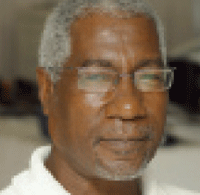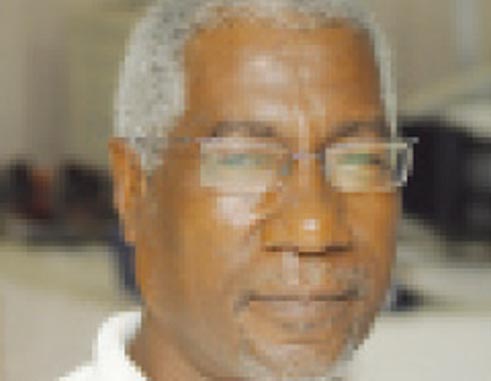
UNITED Nations, New York, October 13th 2016:– When the United Nations General Assembly (UNGA) meets in New York later this month to vote on yet another resolution calling for lifting the decades-old U.S. Embargo against Cuba, the small Caribbean nation will also yet again – for the 25th consecutive time — call on the world to condemn its giant northern neighbour and demand it lifts the punishing economic blockade.
And more than that, as the first black U.S. President starts packing to leave the White House, Havana also plans to point out that Barack Obama’s historic March 2016 visit to Havana, while helpful, was – and still is — not enough to bring ties between Havana and Washington fully back on track.
Precisely this point was made on September 22, when Cuba’s Foreign Affairs Minister Bruno Rodriguez Parrilla addressed the UN General Assembly.
He said Cuba welcomed the Obama visit, but real and true bilateral ties will only be fully established when the crippling U.S. Embargo is lifted and the U.S. returns full sovereignty to Cuba over Guantanamo Bay, where U.S. and the infamous prison bearing its name located, much against Cuba’s will.
It’s the last time the UN will be discussing the annual Cuba-sponsored resolution in the eight years since Obama took office and the Cubans plan to again make their case before the world.
Indeed, this upcoming session slated for October 28 is also historic, as it will be the 25th consecutive annual UN General Assembly debate on the U.S. Embargo.
Cuba has prepared a document, compiled in June 2016, entitled Cuba’s Report on Resolution 70/5 of the United Nations General Assembly entitled ‘Necessity of ending the economic, commercial and financial blockade imposed by the United States of America against Cuba’.
In it, the Cubans plan to point out in New York that the year between April 2015 and 2016, “some results have been achieved” in the bilateral relations between the U.S. and Cuba — such as re-establishing of diplomatic relations and re-opening of embassies…”
The document also notes that these developments came “after Cuba was taken off the spurious list of States sponsoring terrorism, a list on which Cuba should never have been in the first place.”
It points out that during his visit to Cuba in March, President Obama acknowledged, once more, that the “embargo” policy towards the island is obsolete and must be eliminated.
In his speech at the Alicia Alonso Grand Theatre in Havana on March 22, Obama stressed that the embargo “only harms the Cuban people instead of helping them” and he again called on the U.S. Congress to end it.
In spite of this, however, seven months after the Obama visit, the economic, commercial and financial blockade against Cuba remains in force and the restrictions continue being applied.
The Cubans will note that between 2015 and 2016, the U.S. Departments of the Treasury and Commerce “made several amendments to the policy’s regulations”. But in its statement to the UN later this month, Havana plans to insist that “even though they constitute positive steps, (they) are not enough.”
According to the Cuban document, “Despite the new scenario, on September 11th 2015, President Obama again renewed sanctions against Cuba under the Trading with the Enemy Act of 1917 constituting the foundation for the laws and regulations that make up the blockade, alleging foreign policy interests.”
The Cubans plan to argue that “This policy has continued to be toughened in its financial and extraterritorial dimensions,” pointing to “the imposition of million-dollar fines against banks and financial institutions for having relations with Cuba and in the persecution of Cuban international financial transactions.”
Havana will argue in New York that “The (earlier-announced) authorization of the use of the dollar in Cuba’s international transactions has not materialized, nor the possibility for U.S banks to provide loans to Cuban importers of authorized U.S. products.”
As a result, Cuba argues, the “trepidation” of international companies and entities, including U.S. companies willing to enter the lucrative Cuban market, has only increased for fear of being eventually legally punished for doing business with Cuba – especially in U.S. dollars or through U.S. banks.
The Cubans will argue at the UN that “The President of the United States possesses broad executive faculties that, if he used them with determination, would permit him to substantially dismantle the blockade policy, even though its total elimination requires a decision by Congress.”
The report to be presented to the UN General Assembly will also explain what Havana calls “the limited scope of measures adopted by the U.S. Executive and the spectrum of actions that he could yet take to eliminate the blockade.”
The U.S. debate will take place exactly one week before the U.S. Presidential election and the Cubans are hoping that even if it’s the last foreign policy decision he takes, Obama will by then use the “broad executive facilities” that he will still have.
But with Obama’s hopeful successor under so much pressure from Donald Trump as the date gets closer, Washington lobbyists say “the Hillary Factor” will most likely dominate Obama’s attention as he stumps for the battered Democratic presidential candidate’s very survival. (The Diplomatic Courier)











as the vehement anti Obama TRUMP-et with its shrill eerie halloween echos from a a lurking perch in dismal swamp……..